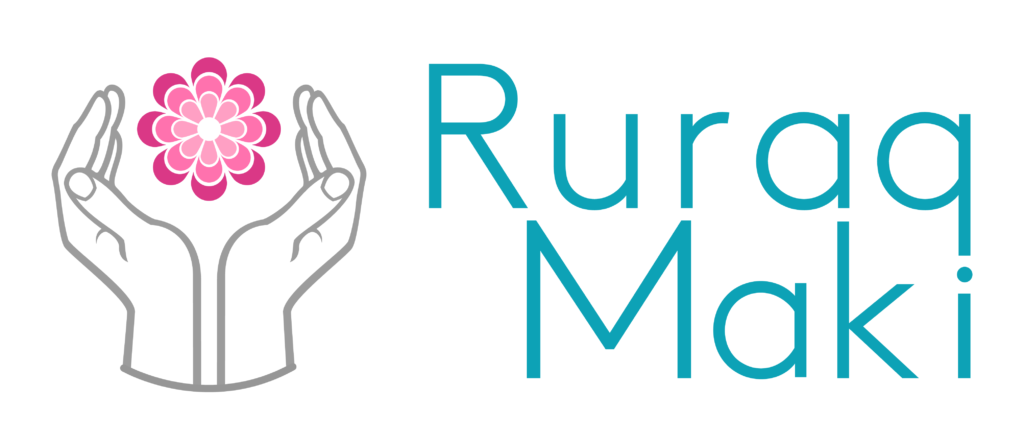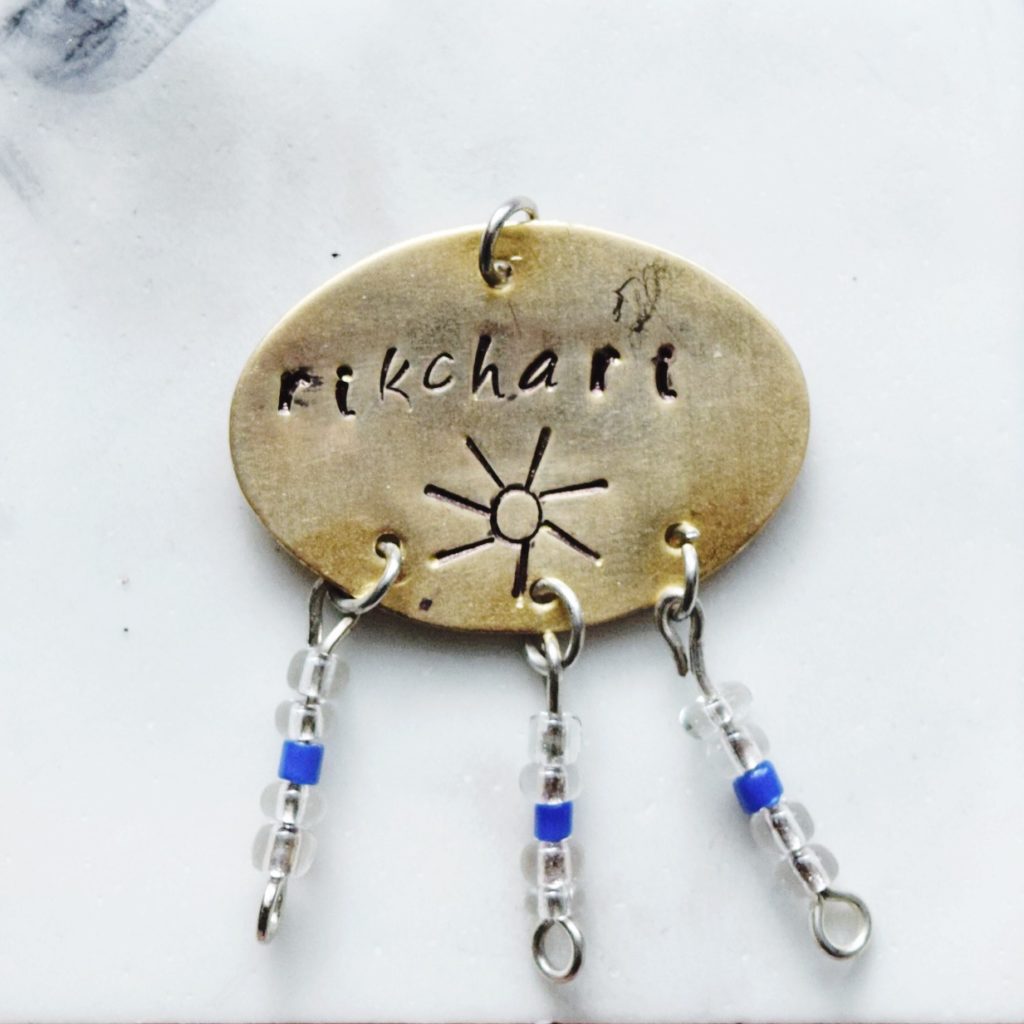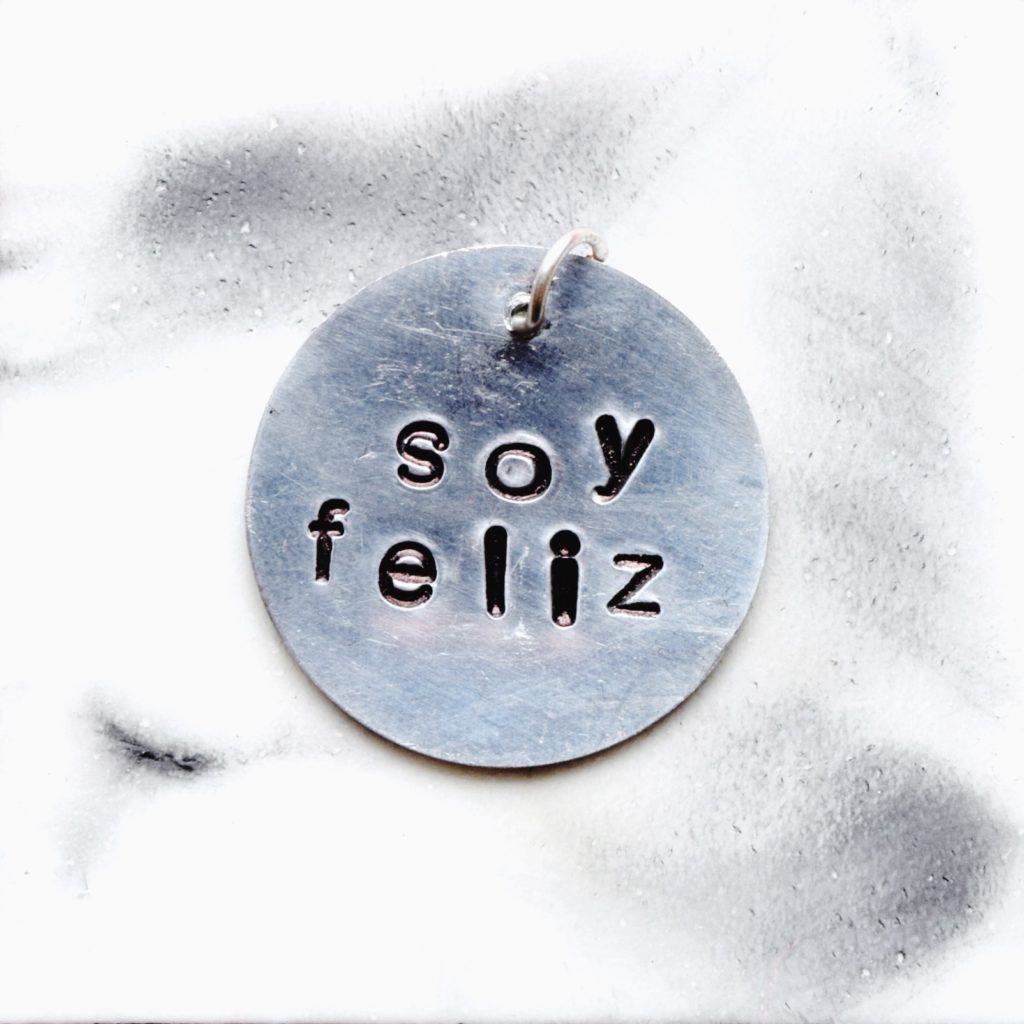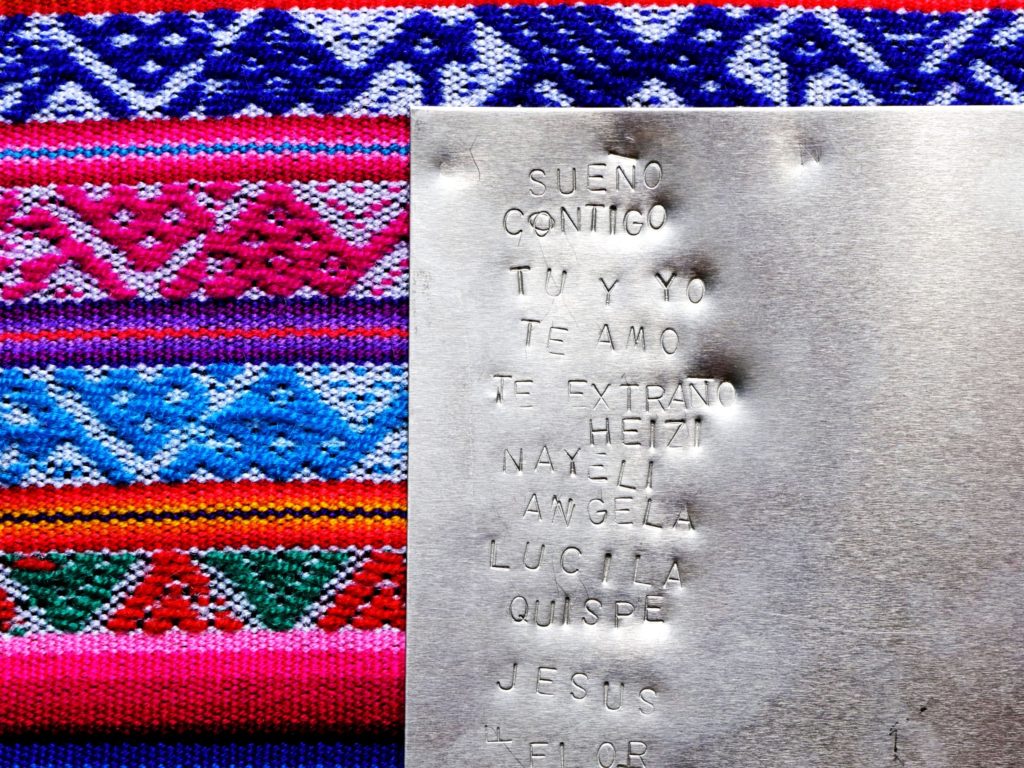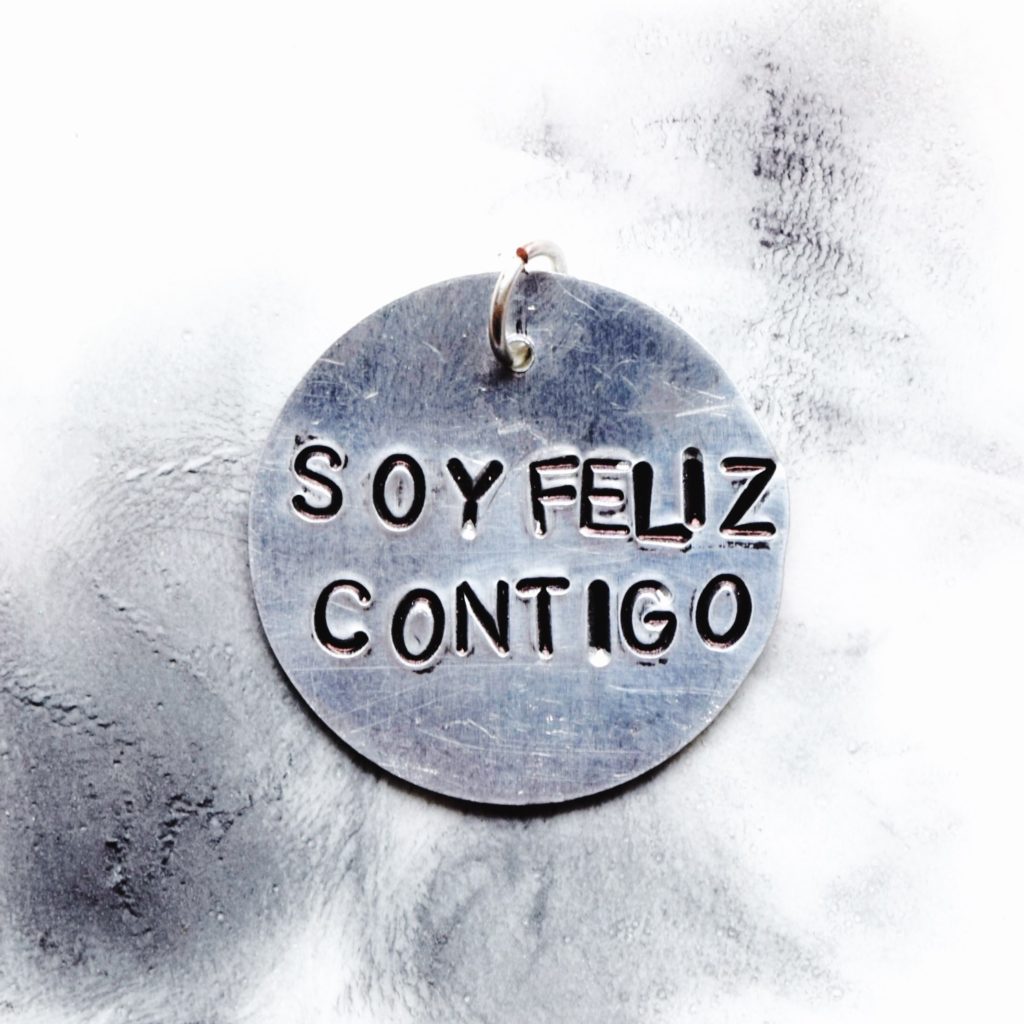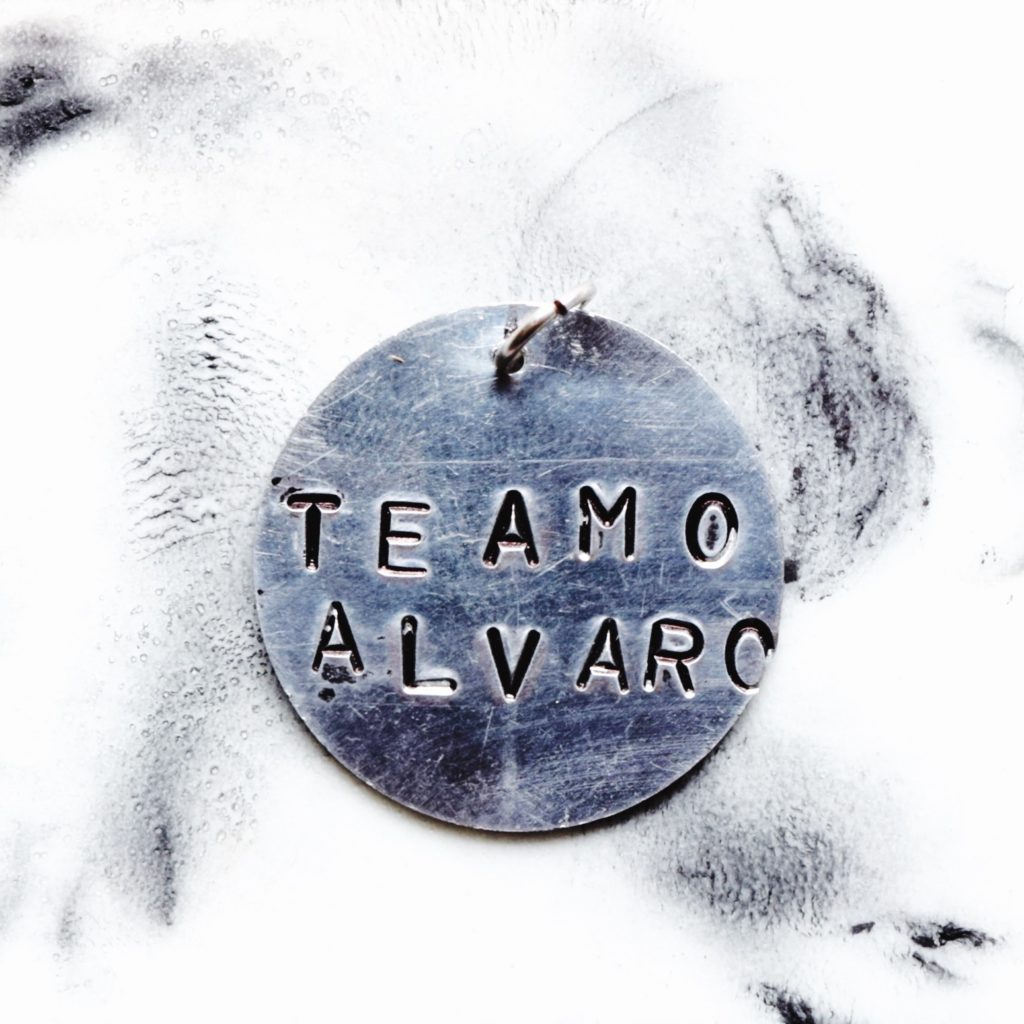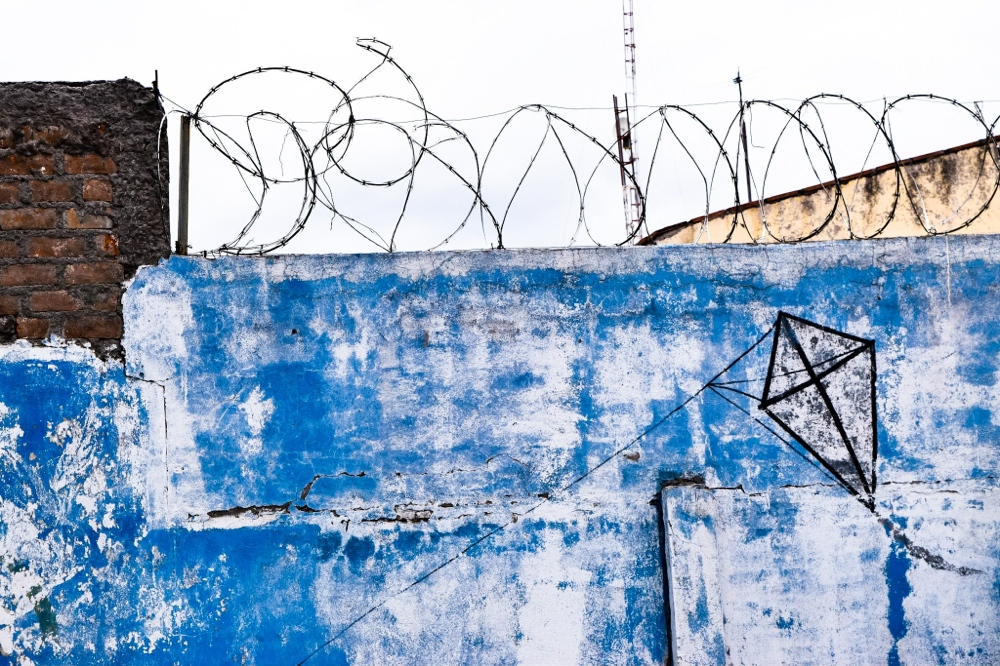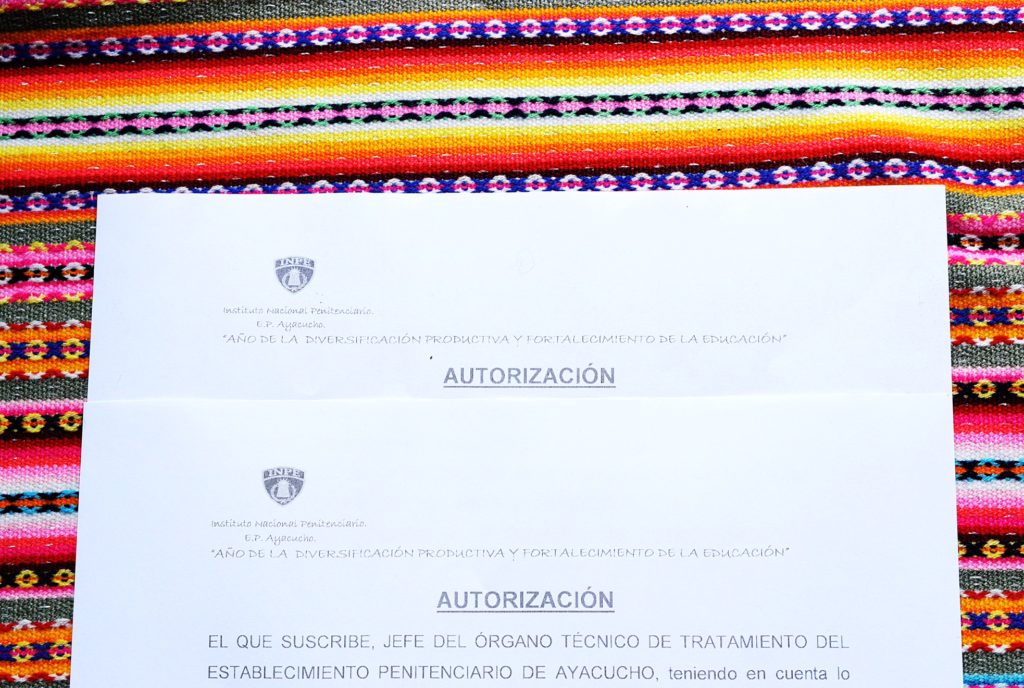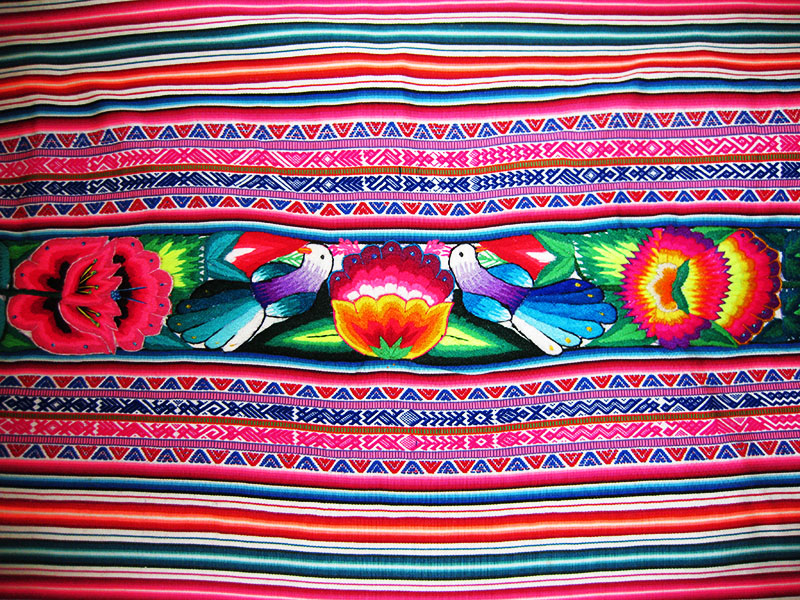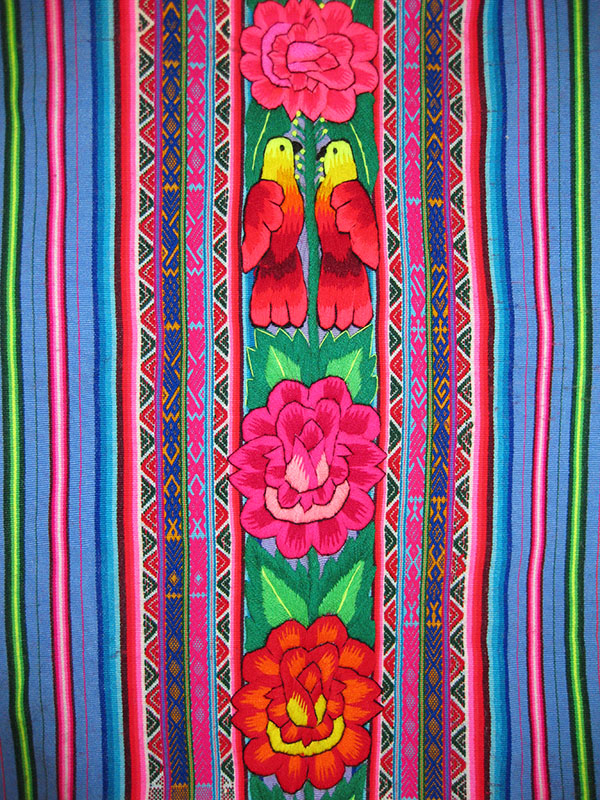Today’s class focused on the women designing and developing their own products within their groups. We began by talking about how to choose a word or phrase that has a meaning that is both personal yet also speaks to a customer. The women were asked to consider the following questions when deciding on their word or phrase: What does this word/phrase mean to you? What is the history of the world or phrase? Who is your client? What does this word or phrase mean to them?
Next the women were asked to write a brief paragraph about their phrase, combining the information from the questions above. This entire process took an hour, as the women spent a lot of time choosing a phrase that would have meaning for both them and their customer.
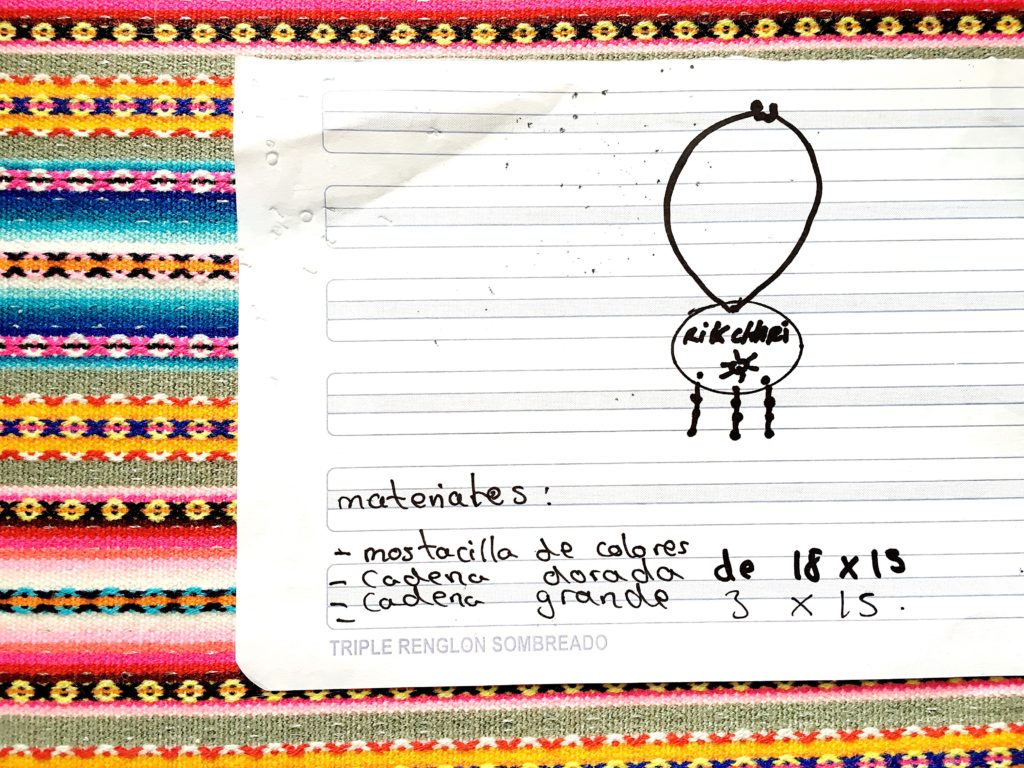
After the women settled on their phrase, the women chose their metal blanks and designed their product on paper. This included deciding what type of product they would sell (pendent, earrings, bracelet), the placement of the word on the blank, and additional decoration they would include, such as bead, wire, chain, etc. Next they made me a shopping list of the materials they would need to make 15 of the same product. This step was very important because many of them began by just saying “chain” and “clasps” instead of measuring and breaking down the exact number of what they would need.
The last step was to make a prototype of their product to use as a guide for the 15 pieces they will be producing. This gave them the chance to experiment with their original design and tweak it if needed. One group changed their design completely and another decided to stamp their phrase in Quechua rather than Spanish.
Finally, the women presented their products to the class and read their answers to the questions. I hadn’t seen any of the answers at this point (only the phrases), and I was really impressed with the depth and thoughtfulness the women put into their products! In fact, all of the women were impressed with what the others did and at the end everyone applauded and hugged. It was an incredibly sweet moment to see how each group came up with something different, yet each phrase was soaked in meaning for all of us.
Here is an example from one group:
Rikchari
Rikchari is Quechua for “awaken” and it is a word full of life and hope. It encourages us to continue to live each day with courage and to never give up until the last breath of our lives.
If you are weeping, don’t worry. So am I.
